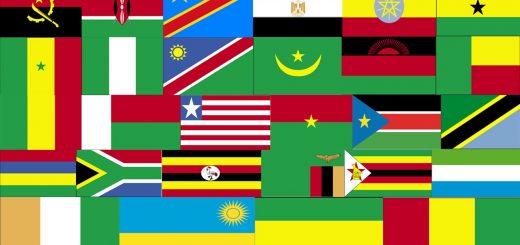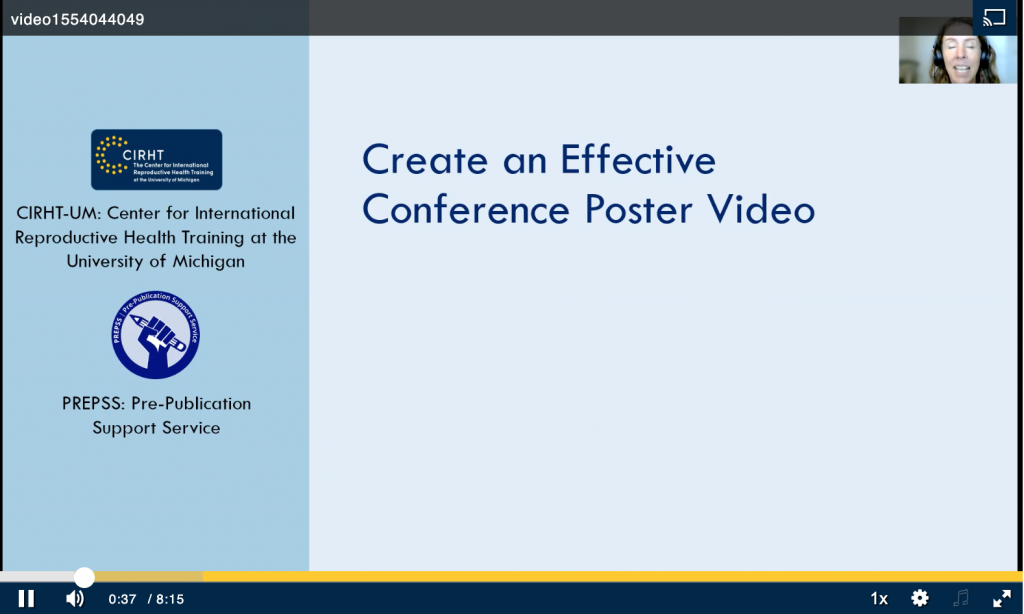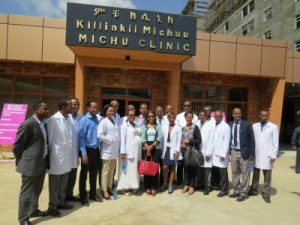News Review – 13 October 2017
Girls
Voices from across the reproductive justice world on the International Day of the Girl (or “Girl Child”) called for action, including the need to educate adolescent girls as the “key to tackling global poverty” and “secure a triple benefit for society”; an increase in contraception access to improve the economy (“Step one: Improve access to birth control. Step two: Decrease the wage gap. Step three: Increase GDP”); and efforts to help young women avoid unplanned pregnancies which will also help them stay in school longer—allowing them to have better job opportunities. Women Deliver president and CEO Katja Iversen asks “Want to deliver on the promises of UHC? Invest in girls’ and women’s health and rights.”
The day gave an opportunity to highlight the need to need to end child marriage, “a major barrier to progress for girls around the world.” In Ghana “Girls not Brides“ called for the government to step up investments: “Girls who marry as children are deprived of their fundamental rights to health, education and safety. Neither physically nor emotionally ready to become wives and mothers, child brides are at greater risk of experiencing dangerous complications in pregnancy and childbirth, contracting HIV/AIDS and suffering domestic violence.” In Uganda, where “25 per cent of adolescents aged between 15 and 19 have begun childbearing,” Action for Community Development continuously monitors imperiled girls, while Justice and Rights Associates works to enforce laws protecting girls from arranged marriages, to increase education and access to contraception, and to liberalize abortion laws. The Maternal Health Task Force notes, “Globally, one in nine girls marries before age 15, and about one in three marries before age 18. The majority of these child marriages occur in South Asia and sub-Saharan Africa. In Guinea…more than 50% of girls marry early, despite the fact that the legal minimum age of consent for marriage in Guinea is 18 years old,” leading for another call to “recognize child marriage as a maternal and women’s health issue.” Jhpiego uses the example of a 14-year-old Kenyan girl who wats to be a nurse to emphasize that “Girls are more likely to delay marriage and pregnancy if they are educated.” In Sierra Leone, Equality Now is calling for an “end to stigma and discriminatory policy against pregnant girls”, stating “Pregnancy is Not a Contagious Disease.” Perhaps a precedent comes from India, where the Supreme Court ruled sex with child bride is rape.
Tanzania’s Katavi region has a “worrisome” trend in teenage pregnancy, with a prevalence of 45% and used the Day of the Girl to launch “The Life of Every Girl in Katavi Counts…Let Us Work Together,” campaign. Namibia has a high national rate of teenage pregnancy at 19%, prompting adaption of the WHO Global Medical Eligibility Wheel (MET) for contraceptive use.
The fight against FGM received attention, including release of a series of videos produced by PRB. Uganda touts its tough FGM laws which “keep numbers down, but hotspots are still rampant.” Al Jazeera had an expose of the Embera indigenous tribe in Colombia, one of the few communities in Latin America that practices FGM. The movement towards menstrual equity also got an airing – preventing any health, education or economic consequences for the 800 million girls and women who have their period each day worldwide.
UNFPA reminds that though “girls today enjoy better life prospects than previous generations in many ways,” nevertheless extra attention during crises is required, as “disasters and conflict can make a bad situation even worse for girls.” The Kenyan “Empower girls: Emergency response and resilience planning” initiative is addressing those needs in a cross-sectoral campaign.
UNFPA also gives voice to five girls who speak out on inequality. Refinery29 presents a slideshow about women in Tanzania and Uganda whose lives were changed by access to contraception. If the words and thoughts aren’t enough, have a look at the Global Goals video remake of Beyoncé’s “Freedom”.
Reproductive Rights
Reproductive justice includes protecting and educating girls and adolescents. An essay in The Conversation posits: “There’s a clear link… between the state of a country’s democracy and the reproductive rights of its female citizens.”
Yet another study that shows that restricting access to birth control causes long-term problems for women and children, in this case because of drastic price hikes in Chile a decade ago: Children conceived of these unplanned pregnancies are more likely to have health problems before and after birth, the study found, with year-to-year increases in the number of fetal deaths, the number of underweight births, and the number of infant deaths that exceed the increase of the overall birth rate.
It is currently an issue in the Masaka district in Uganda, where despite government outreach efforts (activists are demanding more access), contraception uptake levels are low and unsafe abortion rates are increasing.
In Brazil, in reaction to the Zika virus outbreak, a recent study found “a marked disparity between social strata on control over reproductive intentions. Given the alarm around fetal transmission of Zika and adverse birth outcomes, both high- and low-socioeconomic status (SES) women expressed desires to postpone pregnancy during the Zika epidemic—but only wealthier women had confidence in their ability to do so.”
Abortion access debates in Zambia, Zimbabwe, Kenya, and Malawi, with speculation about whether other Latin American countries will follow the example of Chile (answer: “unlikely”), and the anticipation of a referendum on Ireland’s law next year (“a strong desire to change abortion access”). In Armenia, where 114 boys are born to every 100 girls, a new law calls for enforcement of a prohibition on sex-selective abortions.
A fear that the UK may see “US-style abortion battles” because of intimidation is countered by a Labour MP who is proposing that abortion-center protestors can be stopped by the police in the same way as drunk and disorderly cases. Ontario has introduced a law that creates safe zones around clinics.
Reproductive and sexual health initiatives need to consider “queer women” and the transgender community.
To maintain reproductive health programs requires funding, and many countries are still making plans for how to deal with the loss of funding from imposition of the Global Gag Rule. State Department officials got a grilling about the cuts in a Congressional hearing. Kenya is bracing to adopt new ways of financing social services; Nigeria is recommitting to increasing its family planning budget; philanthropies around the world are responding to the need, though Inside Philanthropy repeats “even the deepest-pocketed funders can’t close the financing gaps that could open because of the GGR and budget cutbacks proposed by the Trump administration.” Dutch minister Lilianne Ploumen, who established the “She Decides” movement, reaffirmed her commitment against polices which “fly in the face of every notion of women’s independence and bodily integrity.”
While the Center for American Progress affirms that in theory “immigration justice is reproductive justice”, in practice an unaccompanied teenage immigrant who entered Texas illegally is being prevented from having an abortion, though it is legal in the state.
Domestically, the Trump administration officially defined life as beginning at conception, which some critics say “ignores science”, and took a number of actions that could restrict access to contraception, including allowing an opt-out of contraception insurance coverage for companies with “moral objections,” with one commentator warning “not to take the free pill for granted,”
The legal battle will look at the question: “When does respect for religious freedom require relieving some people of the obligation to obey rules that everyone else has to follow?” A rabbi who heads Concerned Clergy for Choice makes the argument that, “with nearly nine in 10 women using contraception at some point in their lives, it is clear that contraception is basic health care. And, as pastors to people facing medical matters, we also recognize that it is for the individual to set the course of their personal lives, not their employers.” A student from California State University states simply, “Keep your moral beliefs out of my reproductive rights.”
Whatever the moral arguments may be, the resounding criticism of the administration’s policy is that family planning cuts will cause increase the abortion rate, which seems at odds with its “Pro-Life” protestations. The government also warned it would be investigating more stringently compliance with the Hyde Amendment to prevent any government money from going towards abortions, and is “interfering” with abortion access for women in Federal care.
Various lawsuits around the US may “dramatically expand access to the abortion pill” and overturned restrictions in Oklahoma (again), while the Missouri Supreme Court will hear the case of a Satanist suing for her abortion rights. Politically, the abortion issue had repercussions in Michigan, Illinois, Alabama, New Jersey, Wisconsin and on various “red state Democrats”.
Process
Processes and systems affect delivery of family planning commodities and services. In Ethiopia, former health minister Dr. Admasu Kesete describes how “an army” of community health workers was deployed to save mothers’ lives. University of Michigan colleague Cheryl Moyer has been working in Ghana for ten years, with communities, regional health directors and decision-makers in the capitol to identify the clinical, social and cultural reasons for maternal and infant mortality there and then design specific interventions.” With the collapse in the price of oil, Angola has had to redesign its contraceptive marketplace, encouraging fair market competition and putting consumers at the center.
K4Health released an update to its Community-based Family Planning guidelines. The Challenge Initiative made its case for its “business unusual” approach in Nigeria. The MHTF blog looks at “Reaching the Farthest Behind: Maternal Health Innovations at the Facility Level”, including ways to empower patients and nurses, use data and improve training, and find new financing vehicles. MHTF also looked at the range of factors preventing birth companions from assisting women in delivery, across cultures and systems.
Gathering data about maternal death and response can be a “tall order in resource-poor settings,” but FP High Impact Practices looks at increasing use of digital health systems to achieve time and resource efficiencies. Kenya’s Tharaka Nithi County Initiates Data Monitoring to Track and Strengthen Community-based Distribution of DMPA, and in Malawi Self-injection of DPMA-SC leads to improved continuation rates.
A new group in Nigeria will be closely tracking the family planning budget in Lagos, and Coca Cola launched a Safe Birth Initiative in Cote d’Ivoire and Nigeria, one aspect of which is a focus on maintenance and repair of donated medical equipment.
Any system is only as good as the people who implement it, and Huffington Post gives us 30 Gorgeous Photos That Give Midwives The Credit They Deserve, and MSN Australia looks at A day in the life of an abortion nurse.
And if things don’t always go to plan, have a look at The Flub, where Adolescents 360 publishes a blog about “missteps and failures”, with the goal of “improving access to and use of modern contraceptives for adolescents around the world.”
Complete News Review References:
General/Global
‘Pro-life’ Trump cut family planning – which prevents over 100 million abortions a year, The Nation, 13 Oct 2017
Making a Space for Trans People in Reproductive Justice, The Student Life, 13 Oct 2017
Lawmakers Push For Reproductive Health Revolution, WORT, 12 Oct 2017
Conservatives want to reverse abortion law Rauner signed, Chicago Tribune, 12 Oct 2017
Is There a Link Between Abortion Rights and Democracy?, The Conversation, 12 Oct 2017
Why Doesn’t Every Woman Deliver With a Birth Companion?, MHTF, 12 Oct 2017
Critics say Trump birth control rule ignores science, AP/STAT News, 11 Oct 2017
This Lawsuit Could Dramatically Expand Access to the Abortion Pill, Tonic, 11 Oct 2017
Girls speak out on inequality, UNFPA, 11 Oct 2017
Anti-abortion groups target red-state Democrats over 20-week abortion ban, SBA/USA Today, 11 Oct 2017
Globally Girls Struggle for Rights, HRW, 11 Oct 2017
Dutch minister Lilianne Ploumen: Why I stood up for adolescent girls, Financial Times, 11 Oct 2017
Trump administration officially defines life as beginning at conception, The Independent, 11 Oct 2017
Why invest in teenage girls?, FT 11 Oct 2017
Does Reproductive Freedom Mean Forcing People to Sin?, Reason, 11 Oct 2017
Freedom – International Day of the Girl, Global Goals, 11 Oct 2017
Read These Incredible Stories Of How Contraception Is Changing The Lives Of Women In Tanzania & Uganda, Refinery29, 11 Oct 2017
Rhona Mahony: Eighth Amendment creates ‘unacceptable clinical risk’, Irish Times, 11 Oct 2017
What Women Need to Know if They’re Considering Using an App to Avoid Pregnancy, Verily, 11 Oct 2017
India Supreme Court rules sex with child bride is rape, BBC, 11 Oct 2017
Aligning Employment, Youth, and Family Planning to Drive Economic Growth, Health Policy Plus, 11 Oct 2017
Short Videos Highlight Important FGM/C Data, PRB, 11 Oct 2017
EmPOWER girls: before, during and after crises, UNFPA, 11 Oct 2017
Study finds that obtaining abortion pills from the internet is feasible in the US, Gynuity Health Products, 10 Oct 2017 (See below for Academic reference)
Teen Detained After Crossing Border Fights to Have Abortion, AP, 10 Oct 2017
Plugging the Gap: What Are Funders Doing to Respond to the Global Gag Rule?, Inside Philanthropy, 10 Oct 2017
There may finally be a way to stop abuse by anti-abortion protesters, The Guardian, 10 Oct 2017
This is what happens when women can’t afford birth control, MarketWatch, 10 Oct 2017
Government Shows Pattern of Interference with Abortion Access for Young Women in Federal Care, ACLU, 10 Oct 2017
Beyond Mosquitoes: Sexual and Reproductive Health in the Wake of Zika, Global Health Now, 10 Oct 2017
The Trump administration’s case against birth control is a stunning distortion of science, Vox, 10 Oct 2017
The US Government Now Says Life Begins at Conception, Tonic, 10 Oct 2017
Reaching the Farthest Behind: Maternal Health Innovations at the Facility Level, MHTF, 10 Oct 2017
5 Ways Immigration Justice Is Reproductive Justice, Center for American Progress, 10 Oct 2017
Wrongful Birth Claim Recognized for the First Time in Iowa, ObG Project, 10 Oct 2017
Why Periods Are Political: The Fight For Menstrual Equity, 1A, 10 Oct 2017
Want to deliver on the promises of UHC? Invest in girls’ and women’s health and rights, Devex, 9 Oct 2017
Reader Response: Male birth control should be pursued, Mankato Free Press, 9 Oct 2017
Public opinion and Eighth Amendment, Irish Times, 9 Oct 2017
Armenians urged to value their women as abortions of girls skew population, Thomson Reuters Foundation, 9 Oct 2017
No matter what faith, access to contraception basic care, Albany Times-Union, 9 Oct 2017
Abortion bills in Michigan would keep politics out of exam room, Detroit Free Press, 9 Oct 2017
Women can’t take the free Pill for granted, The Times, 9 Oct 2017
Helping women prevent unintended pregnancies will decrease abortion rate, St. Louis Post-Dispatch, 8 Oct 2017
Trump Contraceptive Move Could Lead to More Abortions, NBC, 8 Oct 2017
Abortion clearly a ‘difficult issue’ for Alabama Democrats as Doug Jones pushes pro-choice stance, AL.com, 8 Oct 2017
Satanist wins transfer of her abortion rights case to the Missouri Supreme Court, Kansas City Star, 8 Oct 2017
Keep your moral beliefs out of my reproductive rights, The Collegian, 8 Oct 2017
Canada province to ban anti-abortion protests and create “safe zones” outside clinics, The Independent, 7 Oct 2017
CMS Beefs Up Enforcement On QHP Coverage Of Abortions Outside The Hyde Amendment, Health Affairs, 7 Oct 2017
Women’s Reproductive And Workplace Rights Will Help the Economy, AlertNet, 7 Oct 2017
Oklahoma judge again overturns medical abortion restriction, LA Times, 7 Oct 2017
US-style abortion battles loom in UK amid claims of intimidation, The Observer, 7 Oct 2017
FGM in Latin America: Colombia’s Embera tribe, Al Jazeera, 7 Oct 2017
Planned Parenthood: Phil Murphy Leads on Women’s Health Issues, PPAFNJ, 7 Oct 2017
A day in the life of an abortion nurse, MSN Australia, 7 Oct 2017
Kathleen Turner: The GOP’s Dangerous Strategy for Attacking Your Reproductive Rights, Cosmopolitan, 6 Oct 2017
30 Gorgeous Photos That Give Midwives The Credit They Deserve, Huffington Post, 6 Oct 2017
Poll shows ‘strong desire to change abortion access’, The Irish Times, 6 Oct 2017
Chile Decriminalized (Some) Abortions—Now What?, Ms. Magazine, 4 Oct 2017
Advocacy Training and Medical Education: The CoFP, Socialist Webzine, 4 Oct 2017
Queer women and sexual health: Are you wrapped up sis?,. This is Africa, 4 Oct 2017
Educating girls: the key to tackling global poverty, The Guardian, 3 Oct 2017
Interview with Richard Horton: Investing in health isn’t a moral case, it is an economic case, APHRC, 28 Sep 2017
The Flub – a blog about learning from missteps and failure, Adolescents 360, September 2017
Academic
First trimester medication abortion practice in the United States and Canada, PLOS One, 12 Oct 2017
Global Sexual and Reproductive Health Package for Men and Adolescent Boys, UNFPA/IPPF, 10 Oct 2017
ASCCP Releases New Colposcopy Guidance: A Risk-Based Approach, ObG Project, 10 Oct 2017
Community-Based Family Planning, K4Health, 4 Oct 2017
Self-Sourced Online and Self-Directed at Home: A New Frontier for Abortion in the United States, Contraception, October 2017
Normal Birth in a Post Truth World, Women and Birth, October 2017
Digital Health for Systems: Strengthening Family Planning Systems Through Time and Resource Efficiencies, Family Planning High Impact Practices, October 2017
Prevention and management of obstetric fistulae requires both a long-term strategy and long-term care, The Lancet Global Health, 20 Sep 2017
Maternal Death Surveillance and Response: A Tall Order for Effectiveness in Resource-Poor Settings, Global Health: Science and Practice, September 2017
Angola
Putting Consumers at the Center in a Context of Limited Choice and Availability of Modern Contraception in Luanda, Angola. Authors’ Response to “Assessing Angola’s Contraceptive Market Landscape”, Global Health: Science and Practice, September 2017
The Collapse of the Price of Oil and the Importance of Fair Market Competition and Optimizing Public and Private Resources: Assessing Angola’s Contraceptive Market Landscape, Global Health: Science and Practice, September 2017
Ethiopia
Ethiopia’s former health minister explains how they built an army to save mothers’ lives., Bill and Melinda Gates Foundation, September 2017
Gambia
Regional health director gives UNFPA thumbs up, The Point, 9 Oct 2017
Ghana
Cheryl Moyer Works to Reduce “Near-Misses” in Ghana, University of Michigan Learning Health Sciences, 11 Oct 2017
On The 2017 International Day Of The Girl Child, Girls Not Brides Ghana Calls For Greater Efforts To End Child Marriage, Modern Ghana, 10 Oct 2017
Guinea
Recognizing Child Marriage as a Maternal and Women’s Health Issue, MHTF, 11 Oct 2017
Kenya
Donald Trump’s cuts in aid to Africa draws hard opposition, Daily Nation, 13 Oct 2017
Contentious safe abortion case continues, Daily Nation, 12 Oct 2017
Stakeholders partner to empower crisis-torn Kenya girls, CAJ News, 11 Oct 2017
Let Girls Be Girls: An Imperative for International Day of the Girl, Jhpiego, 11 Oct 2017
Kenya seeks alternative funding after aid cuts, The East African, 6 Oct 2017
Kenya’s Tharaka Nithi County Initiates Data Monitoring to Track and Strengthen Community-based Distribution of DMPA, Advance Family Planning, September 2017
Malawi
Theater group speaks out on abortion, forced marriages, Malawi News Agency, 9 Oct 2017
Self-injection of DPMA-SC leads to improved continuation rates, Advancing Partners & Communities, September 2017
Namibia
Increased access to quality family planning services is key to the health of adolescent girls and young women, WHO, 10 Oct 2017
Nigeria
Nigerians Urged to Practice Safer Family Planning, News Ghana, 12 Oct 2017
TVC Breakfast October 11th | International Day of the Girl Child, TVC. 11 Oct 2017
1.4m unwanted pregnancies prevented by 6.4m women on family planning, Daily Trust, 11 Oct 2017
UNFPA, Cross River govt partner on family planning method, Today, 11 Oct 2017
Nigerian women face their fears and start using contraception, Financial Times, 11 Oct 2017
Nigeria Restates Commitment To Fund Family Planning Programmes, PM News, 11 Oct 2017
Nigeria setting good example on family planning – UNFPA Executive Director, Nigeria Health Online, 11 Oct 2017
Coca Cola to Launch Safe Birth Initiative, This Day, 11 Oct 2017
Global Family Planning 2020 Leadership Gathers in Nigeria to Chart a Course for the Future, FP2020, 10 Oct 2017
Group set to track budget for family planning in Lagos, The Guardian Nigeria, 8 Oct 2017
Making the Case for the Initiative’s Approach at Nigeria’s Family Planning Stakeholders Meeting, TCI, 6 Oct 2017
In Lagos, 47,402 embrace family planning in 2 years — NURHI, Nigeria Today, 3 Oct 2017
Family Planning as a Conduct for Robust Development, Arewa Affairs, 25 Sep 2017
Rwanda
Make family promotion part of daily lives – First Lady, New Times, 12 Oct 2017
Sierra Leone
“I’ve come back to school to accomplish my dream”, Concord Times, 11 Oct 2017
‘Pregnancy is Not a Contagious Disease’, Concord Times, 9 Oct 2017
Somalia
Women’s health champion advocates for quality reproductive health services in Somalia, UNSOM, 9 Oct 2017
South Africa
Illegal abortion practitioner bust!, Daily Sun, 11 Oct 2017
Let’s scrap ‘too posh to push’, News24, 8 Oct 2017
Tanzania
Tanzania’s Katavi Region Endorses a Plan to Address Teen Pregnancy, Accompanied by National Campaign, Advance Family Planning, 9 Oct 2017
Water Aid: A Matter of Birth and Death, Water Aid/Hope through Healing Hands, 6 Oct 2017
Katavi tops worrisome teenage pregnancy trend, Daily News, 2 Oct 2017
Uganda
Trials of 14-year-old mother, Daily Monitor, 13 Oct 2017
Health experts, government disagree over teenage contraceptive guidelines, Daily Monitor, 12 Oct 2017
Tough FGM laws keep numbers down in Uganda, but hotspots still rampant, The East African, 12 Oct 2017
Unsafe abortions blamed for barrenness, some cancers, The Observer, 11 Oct 2017
Abortions on the rise as Masaka turns deaf ear to family planning, Daily Monitor, 9 Oct 2017
Why these girls are not in school, Daily Monitor, 8 Oct 2017
A passion for women’s health, Daily Monitor, 8 Oct 2017
Activists demand for increased accessibility to contraceptives, Daily Monitor, 7 Oct 2017
I was scared of becoming a young mother and I knew I would drop out of school, Uganda Youth and Adolescents Health Forum, 5 Oct 2017
Sometimes It’s Not A Condom Breakage, It Is Stealthing At Play, Sauti Plus, 26 Sep 2017
Zambia
Why should Zambia decriminalise abortion?, Times of Zambia, 9 Oct 2017
Zimbabwe
Legalise abortion, says Biti, This Day, 10 Oct 2017






